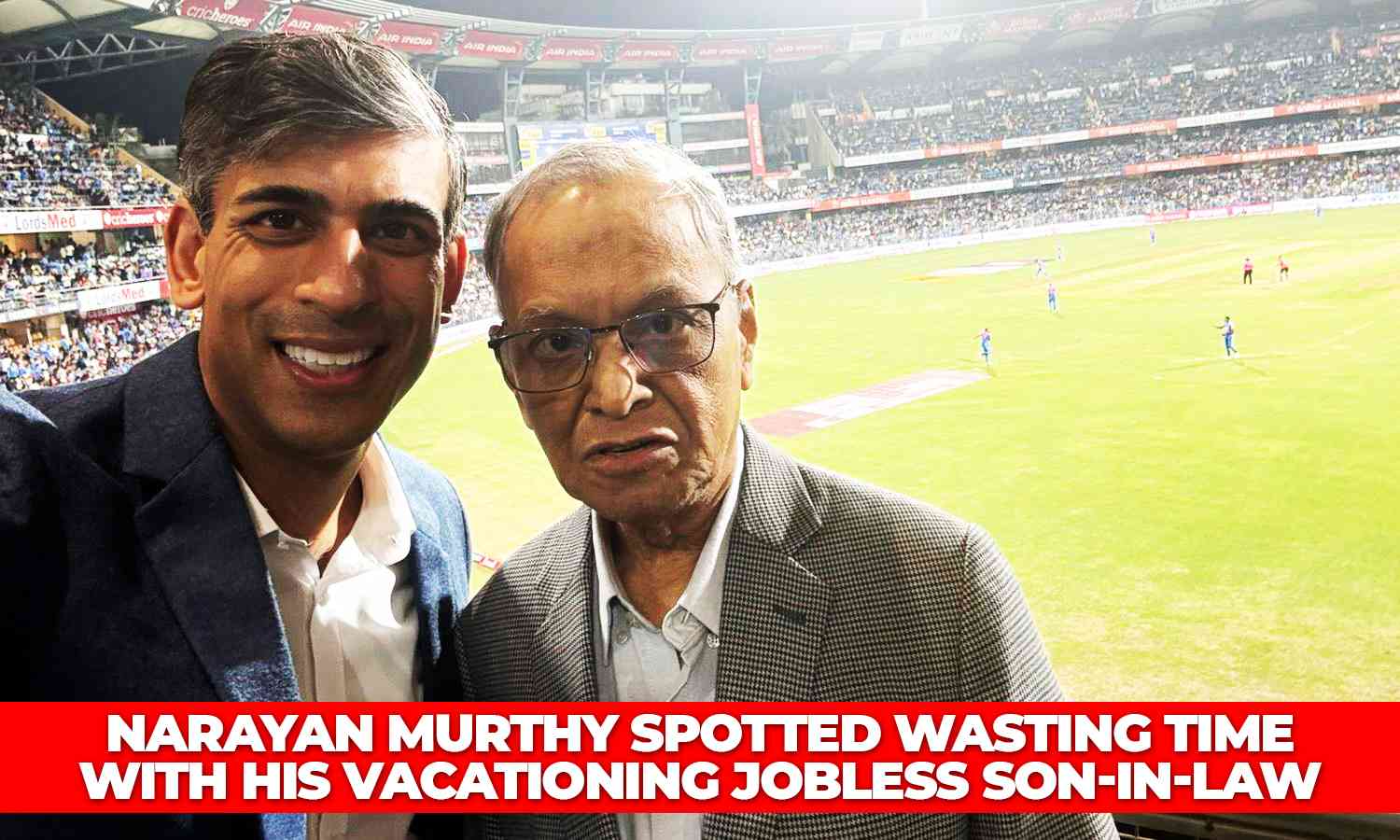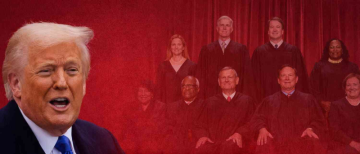The 70-Hour Workweek vs. The Leisurely Getaway: A Tale of Irony
It’s always refreshing when billionaires tell the rest of us how to live. Infosys co-founder Narayana Murthy, revered as the oracle of corporate wisdom, recently suggested that young Indians should work 70 hours a week to make the nation globally competitive. Ah yes, because nothing screams ‘economic progress’ like sleep-deprived employees running on caffeine and existential dread. But just as Murthy was urging the nation’s workforce to glue themselves to their desks, his very own son-in-law, UK Prime Minister Rishi Sunak, was busy flooding social media with pictures from his leisurely holiday in India. Sunak and his family were spotted soaking in the sun, enjoying India’s hospitality, and generally doing everything but clocking 70-hour workweeks. The irony? It practically writes itself.

One can’t help but admire the cosmic humour of it all. Murthy believes that India will only reach its true potential if its workers sacrifice personal time, while Sunak—who married into the Murthy empire—is busy ‘reconnecting with his roots’ in the most relaxed way possible. To be fair, maybe Sunak is just following the classic corporate hierarchy: The bosses dictate the hard work while they themselves jet off to picturesque retreats, advocating ‘work-life balance’ for a select few.
Murthy’s argument, of course, isn’t entirely without merit. Hard work is indeed essential for national growth. But in a country where work-life balance is already a luxury, where employees struggle with overwork, lack of social security, and burnout, the call for a 70-hour workweek sounds more like a demand for modern-day serfdom than a roadmap to success. If excessive work hours were the golden ticket to prosperity, India’s IT workers—many of whom are already overworked—would have turned the country into an economic superpower overnight.
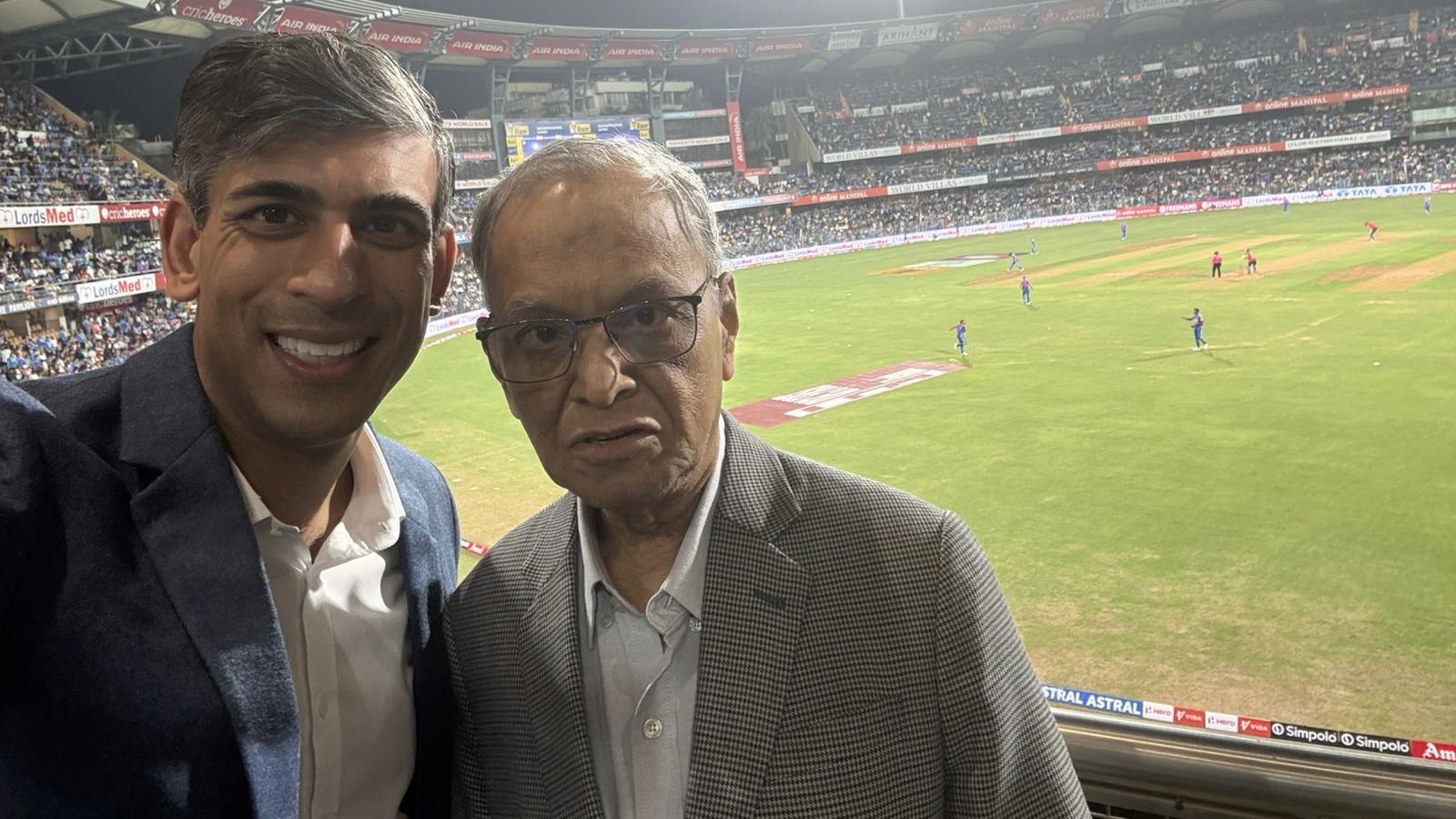
Meanwhile, Sunak’s holidaying isn’t just a personal indulgence; it’s a masterclass in political optics. Here’s a leader of a nation battling economic instability, cost-of-living crises, and growing public dissatisfaction, taking time off in India, the country his own government often lectures on governance and development. The audacity is almost admirable.
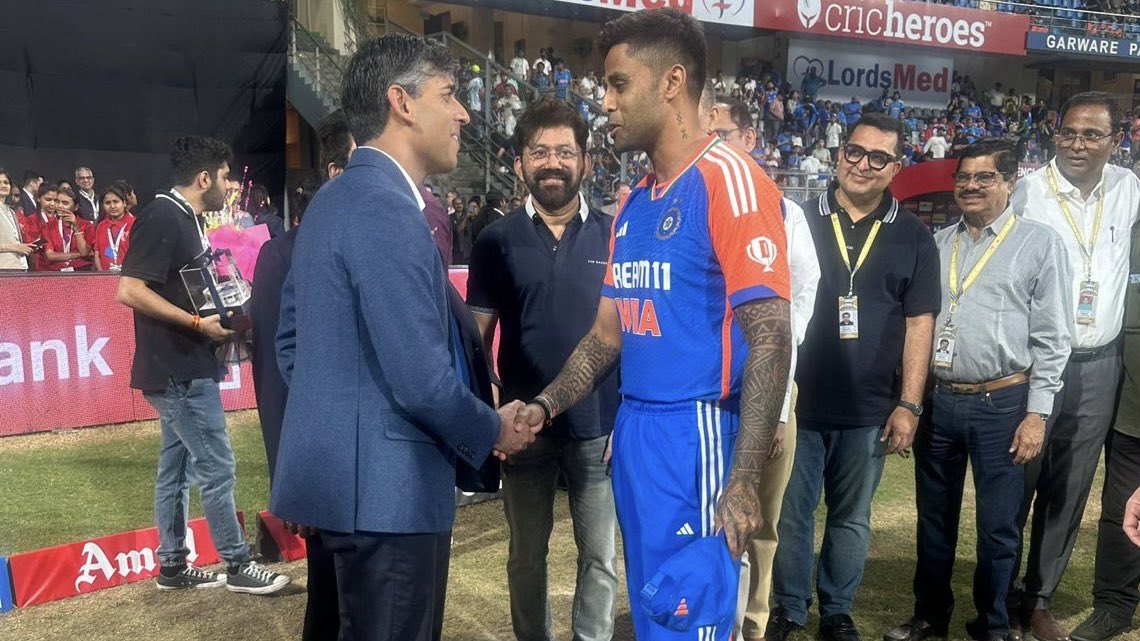
So, what do we learn from this? That hard work is necessary—but apparently, only for some. That billionaires and their families can advocate rigorous work schedules while personally enjoying the finest luxuries. And that irony, like power, is best enjoyed when one is at the top. Perhaps Murthy’s next piece of wisdom should be directed at his own inner circle: If you truly believe in the 70-hour doctrine, lead by example. Otherwise, don’t be surprised when people see it for what it really is—a convenient rulebook meant only for the underprivileged masses.
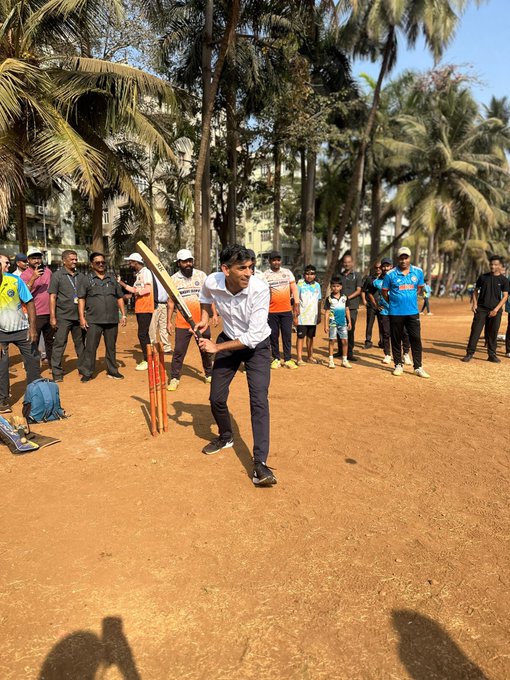
(Note from Editor - Read with enormous sarcasm)
Rishi Sunak’s Mumbai Visit: A Game of Cricket, History, and Nostalgia
For Rishi Sunak, no trip to Mumbai would be truly complete without a game of cricket. The former UK Prime Minister, currently a Conservative MP, embraced the spirit of the city by visiting the historic Parsee Gymkhana on Marine Drive on Sunday morning, where he indulged in a friendly game of tennis ball cricket.
Sunak’s visit to the gymkhana was more than just a casual sporting affair—it was a moment steeped in history. Established in the late 19th century, the Parsee Gymkhana holds the distinction of being the first community sports club on Mumbai’s coastline. This year, it marks its 140th anniversary, making Sunak’s presence at the venue all the more symbolic.
History Comes Full Circle
As Sunak took his place at the crease, it was hard to ignore the historical resonance of the moment. Back in 2022, when he became Britain’s first Prime Minister of Indian origin—and indeed, the first non-white individual to hold the position—headlines around the world proclaimed: “The Empire Strikes Back.” Now, in 2025, here he was, wielding a cricket bat on land that had once been granted to the Parsee Gymkhana by the British colonial government at the height of its imperial rule.
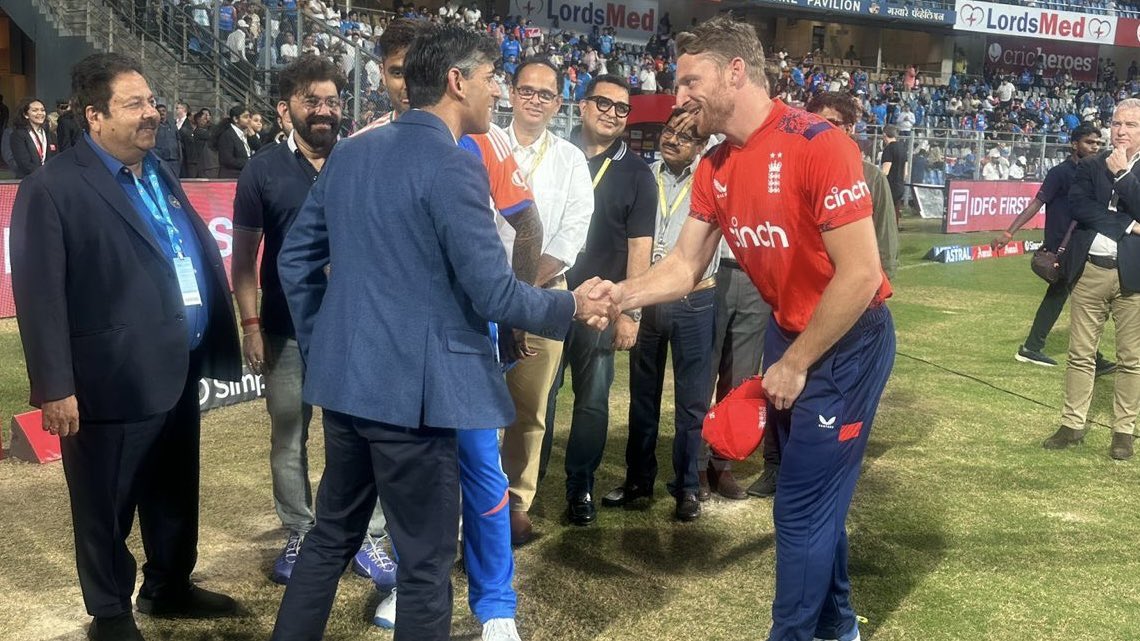
Speaking at the event, Sunak expressed his admiration for the institution:
“It’s fantastic to be here at the Parsee Gymkhana, celebrating its 140th anniversary. What an extraordinary achievement! This place has such a rich history, and I have no doubt that even greater things lie ahead. I managed to survive at the crease for a while this morning, so I’ll count that as a win! Thank you for having me—I look forward to coming back.”
During his visit, Sunak interacted with members of the gymkhana and spent time with boy scouts from the 16th East Zoroastrian Bharat Scout group, who regularly train on the grounds.
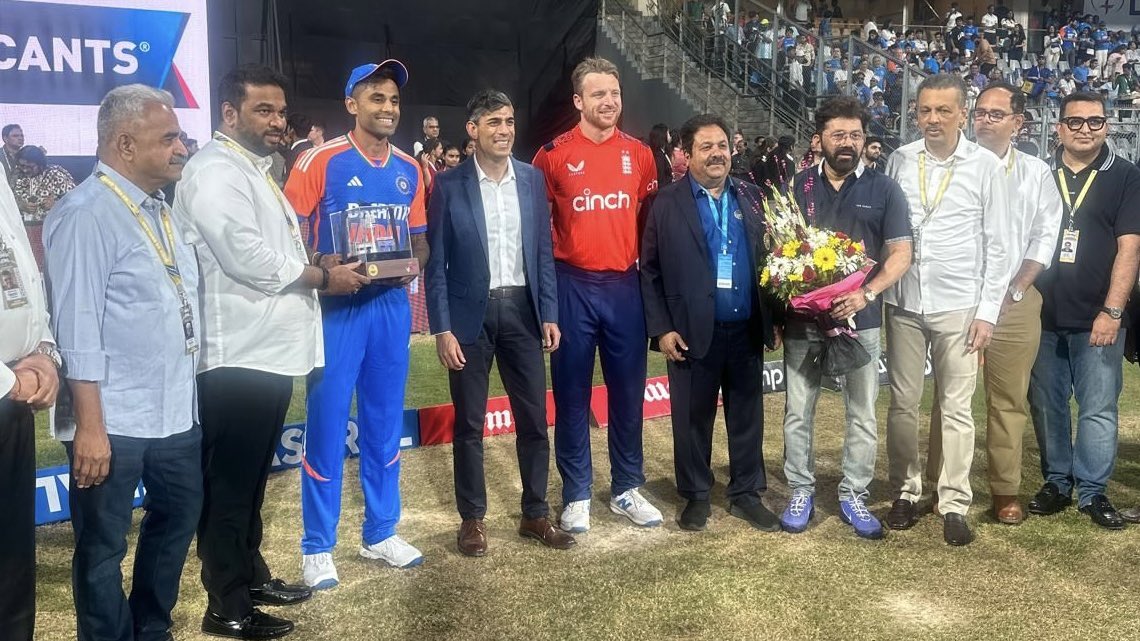
The vice-president and cricket secretary of the gymkhana, Khodadad Yazdegardi, shared how the visit came to be:
“When we heard that Mr Sunak was heading to Oval Maidan, a common friend arranged for him to stop by the Parsee Gymkhana. We gave him a brief history of the club, including how this land was originally acquired from the British government. We also spoke about the first-ever Indian cricket team—comprising only Parsi players—that toured England in 1886.”
Sunak’s time at the gymkhana may have been brief—lasting just 45 minutes—but it left an impression. Yazdegardi noted that the former Prime Minister’s batting stance suggested a youthful familiarity with the game:
“You could tell that he must have played cricket in his younger days.”
Sunak later took to social media to share his experience, posting on X (formerly Twitter):

“No trip to Mumbai would be complete without a game of tennis ball cricket.” Following his visit, he headed to the Cricket Club of India (CCI) at Churchgate for breakfast before making his way to Wankhede Stadium, where he was scheduled to watch the India-England T20 match later that evening.
Born to Indian-origin parents who had emigrated to the UK from East Africa, Rishi Sunak made history in 2022 as the youngest British Prime Minister in over 200 years. However, his tenure lasted just under two years, coming to an end in November 2024 when the Labour Party secured a decisive victory in the general elections. Sunak now serves as a Conservative MP, having stepped down as Leader of the Opposition. His visit to Mumbai, and his cricketing cameo at the Parsee Gymkhana, served as a reminder of his deep-rooted connection to India—a nation that continues to celebrate its complex, intertwined history with Britain in ways both symbolic and sporting.
The views expressed in this article are personal. They do not reflect the opinions, beliefs, or positions of Vygr and Vygr Media Private Limited.
© Copyright 2024. All Rights Reserved Powered by Vygr Media.

